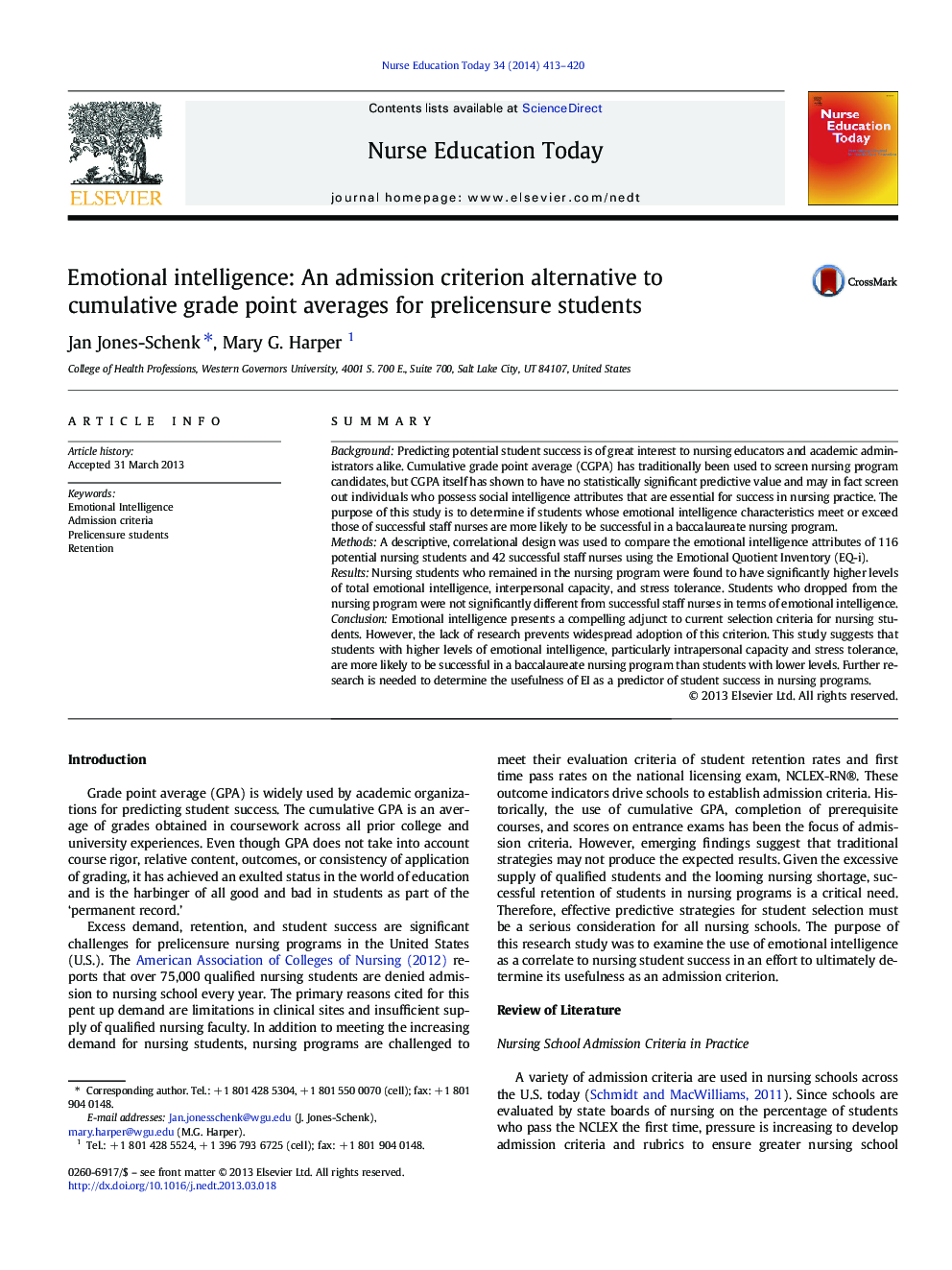| Article ID | Journal | Published Year | Pages | File Type |
|---|---|---|---|---|
| 368132 | Nurse Education Today | 2014 | 8 Pages |
SummaryBackgroundPredicting potential student success is of great interest to nursing educators and academic administrators alike. Cumulative grade point average (CGPA) has traditionally been used to screen nursing program candidates, but CGPA itself has shown to have no statistically significant predictive value and may in fact screen out individuals who possess social intelligence attributes that are essential for success in nursing practice. The purpose of this study is to determine if students whose emotional intelligence characteristics meet or exceed those of successful staff nurses are more likely to be successful in a baccalaureate nursing program.MethodsA descriptive, correlational design was used to compare the emotional intelligence attributes of 116 potential nursing students and 42 successful staff nurses using the Emotional Quotient Inventory (EQ-i).ResultsNursing students who remained in the nursing program were found to have significantly higher levels of total emotional intelligence, interpersonal capacity, and stress tolerance. Students who dropped from the nursing program were not significantly different from successful staff nurses in terms of emotional intelligence.ConclusionEmotional intelligence presents a compelling adjunct to current selection criteria for nursing students. However, the lack of research prevents widespread adoption of this criterion. This study suggests that students with higher levels of emotional intelligence, particularly intrapersonal capacity and stress tolerance, are more likely to be successful in a baccalaureate nursing program than students with lower levels. Further research is needed to determine the usefulness of EI as a predictor of student success in nursing programs.
